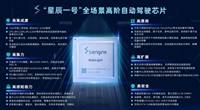ꢀꢁ ꢂꢃ ꢄ ꢅꢆꢇ ꢈ ꢉ ꢊ ꢀꢁ ꢈꢃ ꢄꢅ ꢆꢇ ꢈꢉ
ꢋ ꢌꢍꢎ ꢄꢏ ꢐꢍ ꢑꢑ ꢏꢌ ꢏꢁꢋ ꢍꢒ ꢄ ꢋ ꢌꢒꢁꢀ ꢆꢏ ꢍ ꢓꢏ ꢌ ꢀ
SLLS459C − NOVEMBER 2000 − REVISED MARCH 2005
SN65LBC170DB (marked as BL170)
SN75LBC170DB (marked as BL170)
D
D
D
D
Three Differential Transceivers in One
Package
(TOP VIEW)
†
Signaling Rates Up to 30 Mbps
Low Power and High Speed
1D
1DIR
NC
1B
1A
NC
V
1
2
3
4
5
6
7
8
16
15
14
13
12
Designed for TIA/EIA-485, TIA/EIA-422, ISO
8482, and ANSI X3.277 (HVD SCSI Fast−20)
Applications
GND
2D
CC
2B
D
D
Common-Mode Bus Voltage Range
–7 V to 12 V
2DIR
3D
11 2A
10 3B
ESD Protection on Bus Terminals
Exceeds 12 kV
3DIR
9
3A
D
D
D
D
Driver Output Current up to 60 mA
Thermal Shutdown Protection
SN65LBC170DW (marked as 65LBC170)
SN75LBC170DW (marked as 75LBC170)
(TOP VIEW)
Driver Positive and Negative Current
Limiting
1D
1DIR
NC
1
2
3
4
5
6
7
8
9
10
20 1B
Power-Up, Power-Down Glitch-Free
Operation
19
18
17
16
15
14
13
12
11
1A
NC
NC
D
Pin-Compatible With the SN75ALS170
GND
NC
D
Available in Shrink Small-Outline Package
V
CC
2D
2B
2A
3B
3A
NC
description
2DIR
NC
The SN65LBC170 and SN75LBC170 are
3D
monolithic integrated circuits designed for
bidirectional data communication on multipoint
bus-transmission lines. Potential applications
include serial or parallel data transmission, cabled
peripheral buses with twin axial, ribbon, or
twisted-pair cabling. These devices are suitable
for FAST-20 SCSI and can transmit or receive
data pulses as short as 25 ns, with skew less
than 3 ns.
3DIR
NC − No internal connection
logic diagram
1DIR
1A
1B
1D
These devices combine three 3-state differential
line drivers and three differential input line
receivers, all of which operate from a single 5-V
power supply.
2DIR
2A
2B
The driver differential outputs and the receiver
differential inputs are connected internally to form
three differential input/output (I/O) bus ports that
are designed to offer minimum loading to the bus
2D
3DIR
3A
3B
whenever the driver is disabled or V
= 0. These
CC
ports feature a wide common-mode voltage range
making the device suitable for party-line
applications over long cable runs.
3D
Please be aware that an important notice concerning availability, standard warranty, and use in critical applications of
Texas Instruments semiconductor products and disclaimers thereto appears at the end of this data sheet.
†
The signaling rate of a line is the number of voltage transitions that are made per second expressed in the units bps (bits per second).
ꢎ
ꢎ
ꢌ
ꢔ
ꢥ
ꢐ
ꢠ
ꢕ
ꢆ
ꢞ
ꢋ
ꢟ
ꢍ
ꢙ
ꢔ
ꢗ
ꢁ
ꢘ
ꢐ
ꢒ
ꢋ
ꢒ
ꢖ
ꢗ
ꢡ
ꢘ
ꢙ
ꢟ
ꢚ
ꢛ
ꢜ
ꢜ
ꢝ
ꢝ
ꢖ
ꢖ
ꢙ
ꢙ
ꢗ
ꢗ
ꢖ
ꢞ
ꢞ
ꢢ
ꢟ
ꢠ
ꢚ
ꢚ
ꢡ
ꢡ
ꢗ
ꢝ
ꢜ
ꢛ
ꢞ
ꢞ
ꢙ
ꢘ
ꢢ
ꢋꢡ
ꢠ
ꢣ
ꢞ
ꢤ
ꢖ
ꢟ
ꢜ
ꢞ
ꢝ
ꢖ
ꢝ
ꢙ
ꢚ
ꢗ
ꢠ
ꢥ
ꢜ
ꢗ
ꢝ
ꢝ
ꢡ
ꢞ
ꢦ
Copyright 2002, Texas Instruments Incorporated
ꢚ
ꢙ
ꢟ
ꢝ
ꢙ
ꢚ
ꢛ
ꢝ
ꢙ
ꢞ
ꢢ
ꢖ
ꢘ
ꢖ
ꢟ
ꢡ
ꢚ
ꢝ
ꢧ
ꢝ
ꢡ
ꢚ
ꢙ
ꢘ
ꢨ
ꢜ
ꢍ
ꢗ
ꢛ
ꢡ
ꢞ
ꢝ
ꢜ
ꢗ
ꢥ
ꢜ
ꢚ
ꢥ
ꢩ
ꢜ
ꢝ ꢡ ꢞ ꢝꢖ ꢗꢫ ꢙꢘ ꢜ ꢤꢤ ꢢꢜ ꢚ ꢜ ꢛ ꢡ ꢝ ꢡ ꢚ ꢞ ꢦ
ꢚ
ꢚ
ꢜ
ꢗ
ꢝ
ꢪ
ꢦ
ꢎ
ꢚ
ꢙ
ꢥ
ꢠ
ꢟ
ꢝ
ꢖ
ꢙ
ꢗ
ꢢ
ꢚ
ꢙ
ꢟ
ꢡ
ꢞ
ꢞ
ꢖ
ꢗ
ꢫ
ꢥ
ꢙ
ꢡ
ꢞ
ꢗ
ꢙ
ꢝ
ꢗ
ꢡ
ꢟ
ꢡ
ꢞ
ꢞ
ꢜ
ꢚ
ꢖ
ꢤ
ꢪ
ꢖ
ꢗ
ꢟ
ꢤ
ꢠ
ꢥ
ꢡ
1
POST OFFICE BOX 655303 • DALLAS, TEXAS 75265










 英伟达新AI芯片Rubin或提前半年亮相
英伟达新AI芯片Rubin或提前半年亮相

 苹果iPhone 17将全系采用三星/LG显示LTPO OLED面板
苹果iPhone 17将全系采用三星/LG显示LTPO OLED面板

 三星深化印度制造布局,供应链本地化进程加速
三星深化印度制造布局,供应链本地化进程加速

 芯擎科技“星辰一号”自动驾驶芯片点亮成功,2025年量产在即
芯擎科技“星辰一号”自动驾驶芯片点亮成功,2025年量产在即
